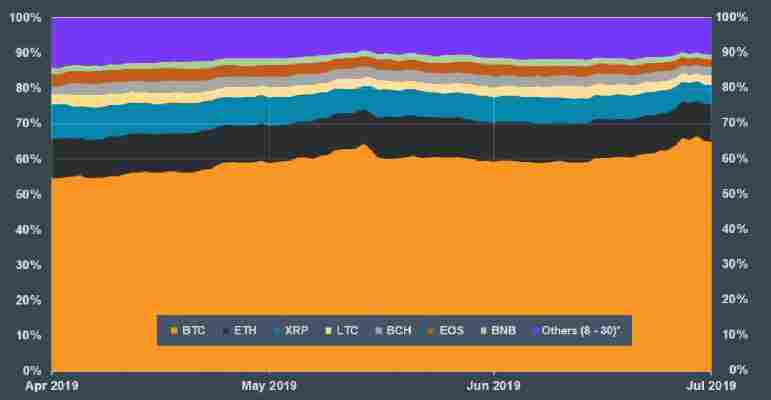Cryptocurrency startup YouHodler has reportedly exposed troves of sensitive customer data including credit card information because it forgot to protect its server with a password.

According to security researchers Noam Rotem and Ran Locar, who uncovered the leak, the company took the database offline as soon as it was notified.
The database consisted of 86 million lines of daily updating records of activity on the lending platform, featuring logs and computer demands based on users’ activity on the front-end website.
TechCrunch, which broke the news, says it’s seen records containing sufficient information to make fraudulent card purchases – with names, credit card numbers, card verification numbers, and expiry dates readily available for fraudsters. None of the data was encrypted.
The database also contained banking information: names, addresses, bank account, SWIFT codes, and transaction amounts.
Roten and Locar also said it contained customer phone numbers and in some instances, passport information.
“The amount of information included in the database makes stealing a users identity a simple task,” the researchers told TechCrunch .
The reported leak comes amid heightened concerns about customer data protection in the wake of several high-profile leaks and hacks, both in and outside of the cryptocurrency arena.
In fact, Swedish cryptocurrency exchange QuickBit made headlines a few days ago after it allegedly leaked 300,000 customer records via an unprotected MongoDB database – so I guess data leaks are back in season. Yay.
Report: Bitcoin outperformed all other coins in Q2 2019
Bitcoin’s market prowess grew by 10.4 percent during Q2 2019.

According to CoinGecko’s Quarterly Report for Q2 2019 , the world’s most famous cryptocurrency increased its dominance from 54.6 percent to 65 percent during the specified time period.
EOS and XRP were the biggest losers, losing nearly half of their market dominance.
XRP fell from 9.8 percent to 5.7 percent, decreasing by 4.1 percent overall.
Meanwhile, EOS saw its market dominance reduced from 3.3 percent to 2.0 percent, representing a 1.3 decrease. Almost all other coins lost market dominance during Q2.


Bitcoin’s price movements
The report also reviewed the digital currency’s performance over the second quarter of this year, noting how it had risen in value from $4,103 to $10,888.
Although the chart shows a noticeable uptick in Bitcoin‘s price following Facebook‘s Libra announcement, it’s worth noting that the cryptocurrency is currently hovering around $ 9,819.85.
In fact, a look at CoinGecko’s live charts shows that the cryptocurrency suffered a steep decline on Tuesday 16 and has since failed to reach the $10,000 mark. And with Facebook set to continue testifying in US Senate today, it’s impossible to predict which way Bitcoin will go.
The report also looked at Bitcoin‘s performance on Google trends, noting how it had surpassed “Stocks” in terms of popularity in the Finance category with a relatively large margin for the first time in two years.
“The last time such a trend was observed was during Bitcoin’s run up to ~$20k, raising hopes for a resurgence of mainstream interest in Bitcoin,” the report adds.
Bosch’s new blockchain smart fridge is a pretty dumb idea
Brace yourself for the most disruptive piece of technology you’ve ever seen: a blockchain fridge.

Electronics giant Bosch has teamed up with Austria’s leading energy provider Wien Energie to build a cutting-edge fridge that logs where its energy comes from on the blockchain.
Wien Energie says fridge owners will also be able to control the device, view its energy consumption, and choose the energy source that powers the appliance via an app.
Putting blockchain aside, this fridge from Bosch and Wien Energie doesn’t really bring anything new to the table as far as features go. Its creators claim its main gambit is to educate owners on their energy usage and let them easily select (and change) suppliers via the blockchain.
It’s unclear on what blockchain the fridge would run – or what currency it’d use – but we’ve asked Bosch and Wien Energie for a clarification.
The fridge will also alert users if the door isn’t closed properly or is open for too long. Personally, I don’t need an app to tell me that, I had too many clips round the ear as a child to find any joy in openly gazing into the cold hazy blue light of the fridge anymore. Also, who needs their fridge opening habits permanently recorded?
Thanks to a smart contract, the fridge automatically sends micro-payments for each kilowatt-hour of electricity it consumes, the announcement states. Bosch and Wien Energie claim this creates proof of where that energy came from.
In reality though, it’s an over-complicated solution to a non-issue.
Fridges need to run round the clock, or what’s inside will go off, obviously. Changing how you power that fridge isn’t going to make that specific fridge more efficient.
The only way to make your current fridge more energy efficient is to buy a new one. In some cases, modern refrigerators are up to 60 percent more energy efficient than the models sold before 2000.
Changing your energy supplier may reduce the amount of CO2 produced for every kilowatt-hour of energy your devices use. But if that’s what you’re worried about, surely you would want your entire house connected to the most environmentally conscious energy supplier.
Speaking of suppliers, it’d be interesting to see the full list of energy suppliers fridge owners can choose among, or if they’d be tied to Wien Energie.
What’s more, if you want to educate yourself on how much energy individual devices use, you’d be better served by using a dedicated energy monitor or even a smart plug. You’d gain the same ability to turn devices on and off remotely, and you’d be made aware of which of your devices needlessly hemorrhage energy.
Bosch’s blockchain fridge also relies on the assumption that energy grids will be open to supporting the technology. In this case, Wien Energie is seemingly already “on board,” claiming to have built infrastructure to support the fridge, but that doesn’t mean it will be the case all over the world.
It might sound cool initially. But, by my reckoning, buying a blockchain-equipped smart fridge is actually a really dumb idea.
Did you know? Hard Fork has its own stage at TNW2019 , our tech conference in Amsterdam. Check it out .











